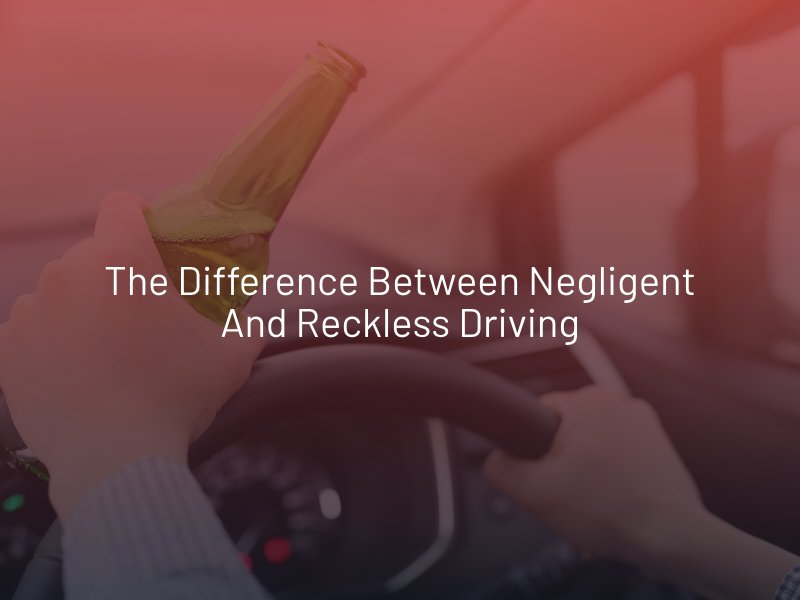The Difference Between Negligent and Reckless Driving
Drivers have a responsibility to operate their vehicles safely and follow traffic laws. However, two types of driver behaviors responsible for many severe accidents and injuries are negligence and recklessness. Understanding their difference may help you when navigating an accident claim with the help of your Las Vegas car accident attorney.

Negligent vs. Reckless Driver Behaviors
Negligence is a driver’s failure to demonstrate the acceptable amount of care expected of them, resulting in harm or injury to others. In other words, they did not use reasonable care when driving and caused an accident. Negligent behavior does not necessarily mean an intentional act. Some examples of negligent driver behaviors include:
- Failing to yield to the right of way
- Falling asleep behind the wheel
- Failing to signal before a turn or changing lanes
- Merging on top of another driver
- Failing to pay attention to the road
These actions do not rise to the level of recklessness. Reckless driving is the more serious violation of the two and occurs when an individual intentionally drives in a way that puts others in danger. Some examples of reckless driving are:
- Driving under the influence of alcohol or drugs
- Excessive speeding
- Running red lights
- Drag racing
- Driving on a sidewalk
- Texting while driving
- Failing to yield to or evading a police officer
Reckless drivers are often deemed to have a “willful or wanton disregard” for human life and the safety of others on the road. They understand the risks associated with their behavior yet drive recklessly anyway. There is the element of intent that truly differentiates reckless driving from negligent driving.
Penalties for Negligent and Reckless Driving
The other difference between negligent and reckless driving is that negligent behavior is typically a traffic offense, whereas reckless driving is a crime. In Nevada, a reckless driving conviction is a misdemeanor, but the penalties will vary based on the type of offense.
Willful or Wanton Disregard Offenses
Reckless driving offenses based on a willful or wanton disregard for the safety of others carry the following possible penalties:
- First Offense: Up to six months in jail and/or between $250 to $1,000 in fines.
- Second Offense: Up to six months in jail and/or between $1,000 to $1,500 in fines.
- Third Offense: Up to six months in jail and/or between $1,500 to $2,000 in fines.
A conviction will also add eight demerit points to the reckless driver’s driving record. If 12 points or more are accumulated within a year, it will result in a six-month license suspension.
Reckless Driving Offenses Involving Accidents
When a reckless driving offense involves an accident, the potential penalties are as follows:
- First Offense: Up to six months in fail, $250 to $1,000 in fines, and 50 to 99 hours of community service.
- Second Offense: Up to six months in jail, $1,000 to $1,500 in fines, and 100 to 199 hours of community service.
- Third Offense: Up to six months in jail, $1,500 to $2,000 in fines, and 200 hours of community service.
Even a first-time offense will also carry a license suspension between six months to two years and possibly vehicle impoundment. When a reckless driving violation involves an accident that caused severe injuries or a fatality, the driver can be charged with a category B felony which carries penalties between one to six years in prison, $2,000 to $5,000 in fines, and a three-year license suspension.